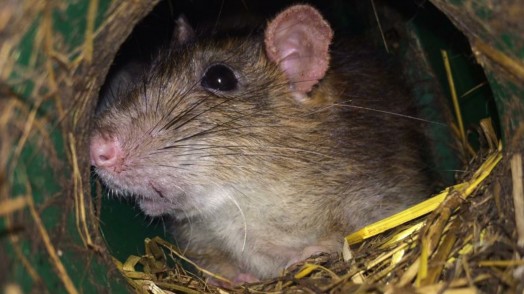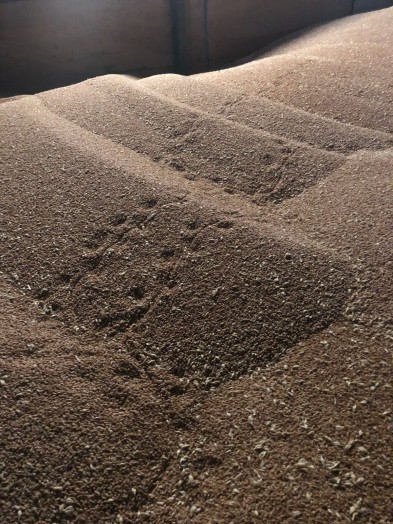Rats in Grain Stores- Is it still acceptable for gamekeepers and farm hands to do pest control? Maybe...
Sunday 8th September 2019
As soon as you start to accumulate large amounts of food in one place, pests will always become a problem.
As one client recently remarked to me when I arrived on his site after harvest- "I hope you know what you're doing, I'm storing 2000 tonnes of rat food!" and he was right!
Pest controllers who 'take on' farms are very different from pest controllers who do your day to day rat and mouse work in houses and offices. They have to really know their onions. With so many food alternatives to bait, you have to think like a rat to win the rodent war.
As always, excluding pests from the grain store is the first line of defence. A good professional won't just bait up around the farm; he/she will also do some 'proofing' work to keep grain stores pest proof. This might be a simple as sticking a bit of wire wool in a gap or applying some mouse-proof mastic (rather inventively called Mouse-Stop). Some people might think this a big task but making a little improvement on every visit, you soon end up with rodent-hostile surroundings.
Then there is the question of visit frequency. Different companies follow different procedures.
Some still follow the traditional agricultural pest calendar: Eight visits in the year, clustering around the cold months and you won't see them much in the summer. This is a little archaic now. In 2011 The Environment Agency successfully argued in the law courts that this 'traditional' schedule of visits is environmentally irresponsible.
Some will visit every six weeks and throw in extra visits if there is a problem, but even this is becoming dated. The CRRU (Campaign for Responsible Rodenticide Use) Code of Practice stipulates that if the bait is put down, then it should only be in response to a live infestation and if you have to resort to bait, it should only stay down for 28 days. Anything more and you are causing an undue risk of harm to the surrounding environment.
Naturally, this pushes us towards monthly visits as a minimum and, especially, a heavy focus on proofing and habitat management.
After the introduction of the Biocides Products Regulation (BPR) in Europe, rodenticides were one of the first groups of chemicals to be analysed for safety. The result was clear, rodenticides do harm the environment when misused, and we are only allowed to hang onto them because there is no viable alternative. But levels of bait residue in the wild food chain are closely monitored, and it won't take much to change the minds of the regulators.
It is up to us to ensure pest control is being carried out professionally on our farms and that includes hiring audited professionals trained to a high standard and belonging to a professional association such as the British Pest Control Association (BPCA).
The world is changing around us, LEAF, Red Tractor, CRRU, and BPR are all pulling in the same direction. Environmental responsibility is key in the modern landscape. The days of gamekeepers and farmhands doing the rat baiting are moving into history. Be warned.




